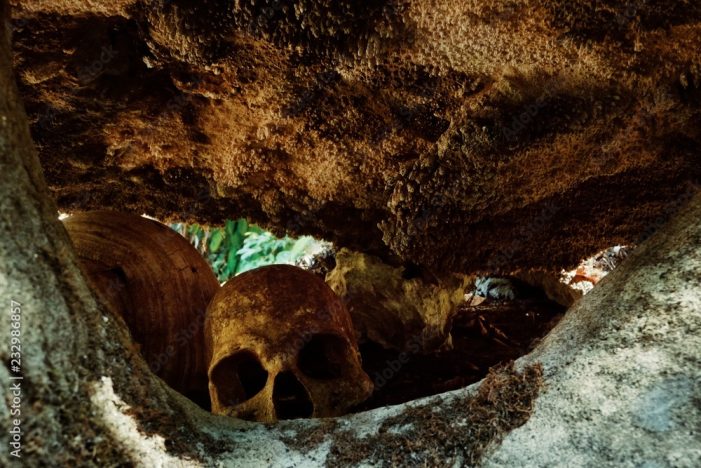ROCKWALL, TX (Oct. 25, 2023) A brave thirty-four-year-old left his native Scotland in 1858 and traveled four and a half months with his young bride to their chosen destination in the South Pacific. Though thankful to finally arrive at their intended island, relief soon gave way to horror and dismay. The local inhabitants were naked and worse—corrupt, violent, and miserable.
The chain of 80-some small islands of volcanic origin called the New Hebrides (now Vanuatu) were colonized by Britain and France in the 1800s. In those days, sailing on small ships in rough waters was only one deterrent to visiting the archipelago. Bold adventurers—explorers, traders, and missionaries like John Paton—were forewarned, “The cannibals! You will be eaten by cannibals!”1 This was no exaggeration.
Before Paton ventured into that dangerous domain, he experienced his own people’s depravities. While serving with the Glasgow City Mission in an impoverished area, he saw the misery of abused women and children due to men who devoted themselves and their meager wages to drinking. Yet Paton would visit these self-destructive men as opportunities allowed. When one alcoholic doctor tried to take his own life, Paton sat with him twice daily until the deranged man finally found peace in Christ.
When Paton heard of the foreign mission effort, he waited, hoping someone else might go. However, like the apostle Paul, he answered the call, “to open their eyes, so that they may turn from darkness to light and from the power of Satan to God” (Acts 26:182).
The missionary suffered many hardships during his decades in the New Hebrides: the death of his wife and child, the theft of goods and equipment, and countless days of illness, hunger, and threats. He further sorrowed over the savage behavior of the islanders, who took the lives of one another at the slightest offense. However, many gradually responded to the gospel message shared with love and perseverance by Paton’s missionary team, which included a growing number of indigenous believers. Over several decades, God’s light penetrated the darkness of tribal hatred, warfare, and crippling superstitions. Thieves, abusers, and murderers became new creatures in Christ.
Paton’s autobiography of his work among cannibals is gripping. But it further offers a sobering resemblance to the growing depravities in our own society. With dismay, we endure corrupt leaders and hateful political wars. With horror, we view reports of gangs that pillage and damage stores, and violent responses to minor provocations. We mourn the innocent lives taken by dark souls who choose to kill and destroy.
We naturally shrink back from caring about those worst offenders. We might easily condemn them. Instead, like John Paton, we should remember that the malady of sin is common to all, yet “God shows his love for us in that while we were still sinners” (including murderers and cannibals), “Christ died for us” (Romans 5:8).
If we are willing to penetrate the deepening darkness of the world around us, we must remember where we came from, and “proclaim the excellencies of him who called [us] out of darkness into his marvelous light” (1 Peter 2:9).
Vanuatu is now a rising tourist destination. The island republic is 93.7% Christian and professes this motto: “With God we stand.” Visitors can find a variety of Christians churches there, any of which could rightly welcome worshipers with the apostle Paul’s words, “He has delivered us from the domain of darkness and transferred us to the kingdom of his beloved Son, in whom we have redemption, the forgiveness of sins” (Colossians 1:13 – 14).
1From John G. Paton’s autobiography; 2English Standard Version
 Patti Richter writes and edits Christian faith articles and has co-authored Signs of HIs Presence: Experiencing God’s Comfort in Times of Suffering. Read more of her essays at BlueRibbonNews.com
Patti Richter writes and edits Christian faith articles and has co-authored Signs of HIs Presence: Experiencing God’s Comfort in Times of Suffering. Read more of her essays at BlueRibbonNews.com








